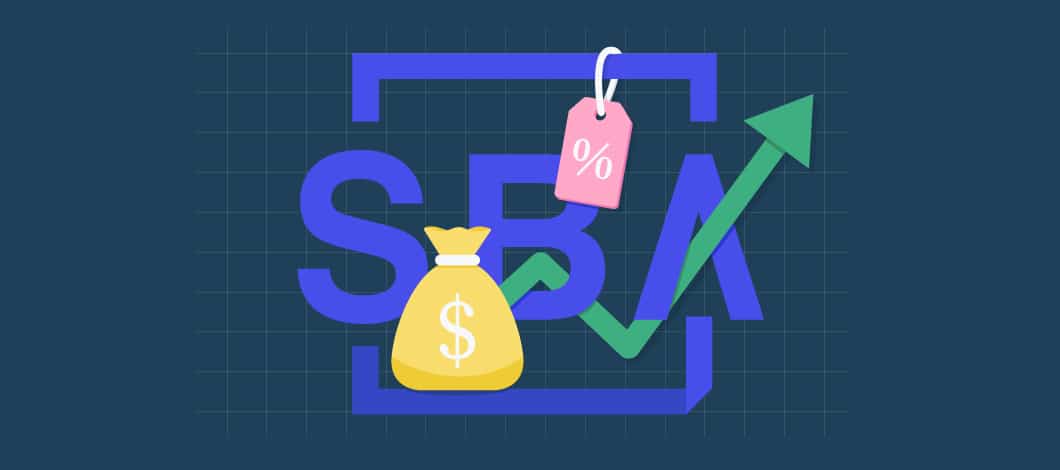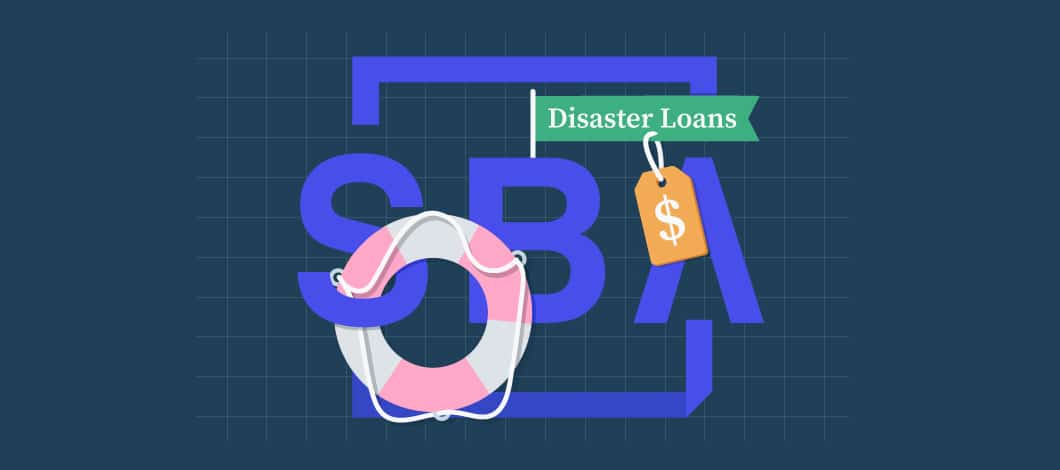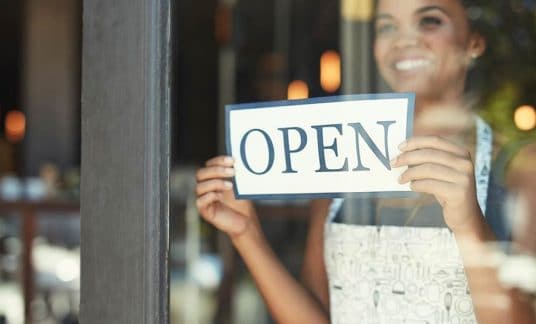Small Business Administration (SBA) loans have some of the lowest interest rates for business financing.
These loans are provided through lenders approved by the federal agency and are supported by an SBA loan guarantee of up to 90% of the amount a business owner borrows.
Here’s an overview of the interest rates available today for one of the most popular SBA loan programs, including for variable- and fixed-rate loans.* Keep in mind, these rates are maximums, meaning the rate you’re quoted cannot exceed that percentage (and may be lower).
Read on to find out more about other SBA loan rates currently in effect.
Current SBA 7(a) Loan Interest Rate Maximums (Variable Rate)
| Loan Amount | If Repayment Terms Are Less Than 7 Years | If Repayment Terms Are More Than 7 Years |
| $25,000 or less | 11.75% | 12.25% |
| $25,001-$50,000 | 10.75% | 11.25% |
| More than $50,000 | 9.75% | 10.25% |
Current SBA 7(a) Loan Interest Rate Maximums (Fixed Rate)
| Loan Amount | Maximum Interest Rate |
| $25,000 or less | 15.5% |
| $25,001-$50,000 | 14.5% |
| $50,000-$250,000 | 13.5% |
| More than $250,000 | 12.5% |
Current SBA Express Loan Interest Rate Maximums
| Loan Amount | Maximum Interest Rate |
| $50,000 or less | 14% |
| More than $50,000 | 12% |
*As of Dec. 15, 2022, based on a prime rate of 7.5%
There’s a full breakdown of SBA loans on the agency’s website, where you’ll find details on the following:
- Who qualifies for these loans
- SBA loan interest rates and terms
- Maximum financing amount offered
We’re going to focus specifically on SBA 7(a) and SBA CDC/504 loans.

SBA 7(a) Loan Program
This is the standard and most popular SBA loan program. It comes with a loan guaranty of 85% for loans up to $150,000 and 75% for loans greater than $150,000. However, SBA Express loans, a type of 7(a) loan, offer a maximum guaranty of 50% and 90% for Export Express loans. This guaranty reduces the risk for lenders extending funds to small businesses.
To secure a loan through the SBA 7(a) loan program, check if your business is considered small by the SBA. The agency features an online size standards tool to help potential loan applicants check whether they can classify themselves as small businesses.
There are other requirements you also have to satisfy. For instance:
- You must have a for-profit business
- Be physically located in the U.S. or its territories
- You must want the loan for a legitimate business reason
- You can’t be in debt to the U.S. government
- You must have invested your own time and/or money into the business
As with any other business loan, if you’re applying for a 7(a) SBA loan, you’ll have to show documents such as financial statements and a business plan.
An established business looking for SBA-guaranteed financing must have a healthy credit score — sometimes around 680. However, the SBA notes that some businesses could qualify for startup funding, even with bad credit. The lender will ultimately decide whether you’re eligible.
What Are the Requirements to Qualify for an SBA Loan?
To qualify for an SBA 7(a) loan, a business must generally meet the following criteria:
- Your business has been up and running for the past 2 years
- You have a credit score of 680 or above
- Your business generates a minimum of $50,000 in annual revenue
Keep in mind, the SBA Express Loan, Export Loans and CAPLines are part of the 7(a) Loan program.
Fixed and Variable SBA Interest Rates
An SBA 7(a) loan can have either a fixed or variable interest rate. The fixed rate remains the same throughout the loan’s duration. Whereas the variable rate will go up or down, either monthly or quarterly, depending upon fluctuations to the base rate.
What Determines SBA 7(a) Loan Rates?
Interest rates vary from lender to lender, but all are subject to SBA maximums. Lenders can tack on an additional percentage of interest to the loan’s base rate. What the lender can charge in additional interest is often tied to the loan’s term length and amount.
What Is the SBA Base Rate?
SBA loan rates today are based on 1 of the following:
- Prime rate (7.5% as of Dec. 15, 2022)
- SBA peg rate
- LIBOR: This stands for London Interbank Offered Rate, considered a benchmark interest rate for major banks
Current SBA 7(a) Loan Interest Rates
The current maximum interest for SBA 7(a) variable-rate loans cannot exceed the following:
- For loan terms less than 7 years:
- $0-$25,000: Prime rate + 4.25% = 7.5% + 4.25% = 11.75%
- $25,001-$50,000: Prime rate + 3.25% = 7.5% + 3.25% = 10.75%
- $50,000 and up: Prime rate + 2.25% = 7.5% + 2.25% = 9.75%
- For loan terms 7 years or longer:
- $0-$25,000: Prime rate + 4.75% = 7.5% + 4.75% = 12.25%
- $25,001-$50,000: Prime rate + 3.75% = 7.5% + 3.75% = 11.25%
- $50,000 and up: Prime rate + 2.75% = 7.5% + 2.75% = 10.25%
The current maximum interest for SBA 7(a) fixed-rate loans cannot exceed the following:
- $25,000 or less: Prime rate + 6% +2%* = 7.5% + 6% + 2% = 15.5%
- $25,000-$50,000: Prime rate + 6% + 1%* = 7.5% + 6% + 1% = 14.5%
- $50,000-$250,000: Prime rate + 6% = 7.5% + 6% = 13.5%
- $250,000 or more: Prime rate + 5% = 7.5% + 5% = 12.5%
*Permitted by 13 CFR 120.215
For SBA Express and Export Express loans, which fall under the 7(a) program, interest rate maximums are:
- $50,000 or less: Prime + 6.5% = 7.5% + 6.5% = 14%
- More than $50,000: Prime + 4.5% = 7.5% +4.5% = 12%
Current SBA 504 Loan Rates
An SBA CDC/504 loan is used to finance fixed assets, such as real estate, machinery or land. If such a loan is offered, the SBA works with Certified Development Companies (CDC) and other financial partners.
Typically, the funding provided is then split among the CDC (up to 40%), the lender (up to 50%) and your business (a minimum of 10%). The maximum amount funded through the CDC ranges between $5 million and $5.5 million, with a 10-, 20- or 25-year fixed rate. The SBA offers business resources that further explain SBA CDC/504 loans and financing rates.
According to the most recent information on the SBA website, SBA 504 loan rates for the CDC portion of the loan are sitting at 2.231%, 2.364% and 2.399% for 10-, 20- and 25-year interest rates, respectively. You may confirm the most current interest rates with your CDC partner.

Current SBA Disaster Loan Rates
While the COVID Economic Injury Disaster Loan (EIDL) program is no longer accepting applications, the standard EIDL is still in place to help small businesses located in a declared disaster zone and have suffered significant economic hardship as a result.
Up to $2 million in funding is available to each qualified applicant and interest rates cannot exceed 4%. Loan repayment terms can extend up to 30 years and proceeds should be used for working capital and normal business expenses (e.g., rent, fixed debt payments, utilities).
The Bottom Line on SBA Loan Rates and Terms
SBA commercial loan rates can be a favorable option for small businesses, largely because of the competitive repayment lengths and terms. Also, the SBA guarantees a large portion of these loans, which makes them less risky for lenders. If a business defaults on an SBA loan, the agency pays out the insured amount.
However, the downside is that applying for such a loan can take time, weeks or even months.
Regardless of the type of financing you go for, it’s worth doing your homework first and factoring in the time it takes for your application to be processed. You’ll need to ask the right questions concerning loan rates and how long those rates will stay in place before signing on the dotted line.








